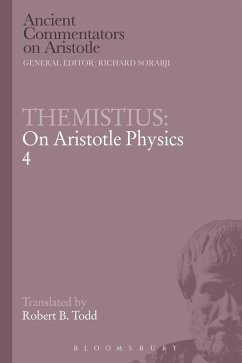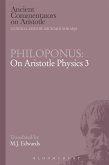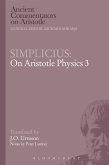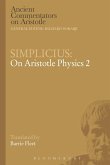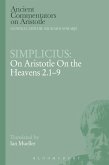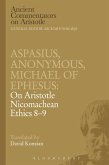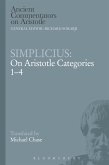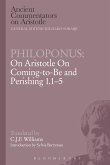Physics Book 4 is one of Aristotle's most interesting works, discussing place, time and vacuum. Themistius was a fourth-century AD orator and essayist, not only a philosopher, and he thought that only paraphrases of Aristotle were needed, because there were already such comprehensive commentaries. Nonetheless, his paraphrastic commentaries are full of innovative comment. According to Aristotle, there is no such thing as 3-dimensional space. A thing's exactly-fitting place is a surface, the inner surface of its immediate surroundings. One problem that this created was that the outermost stars, in Aristotle's view, have no surroundings, and so no place. Themistius suggests that we might think instead of the neighbouring bodies which they surround as providing their place. Aristotle saw time as something countable, and concluded that it depends for its existence on that of conscious beings to do the counting. Themistius is in the minority among commentators in disagreeing. Themistius concurs with Aristotle in denying the existence of vacuum. We cannot think that a space formerly empty of body penetrates right through a body inserted into it. If one extension could penetrate another, says Themistius, a body could penetrate a body, because bodies occupy places solely in virtue of being extended.
Bitte wählen Sie Ihr Anliegen aus.
Rechnungen
Retourenschein anfordern
Bestellstatus
Storno

